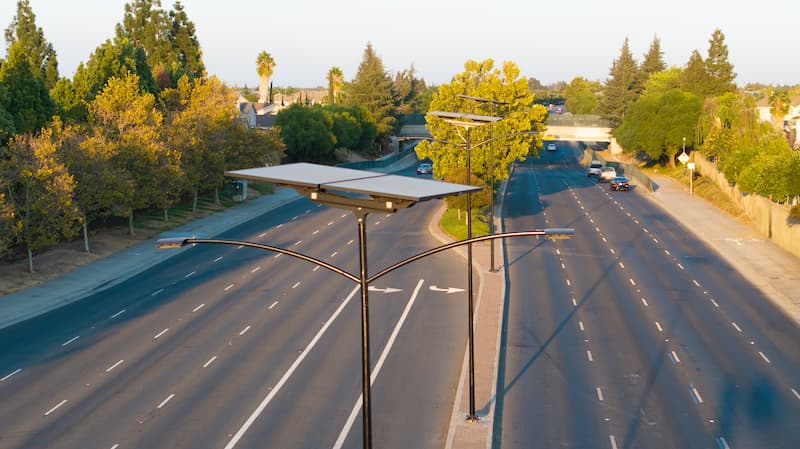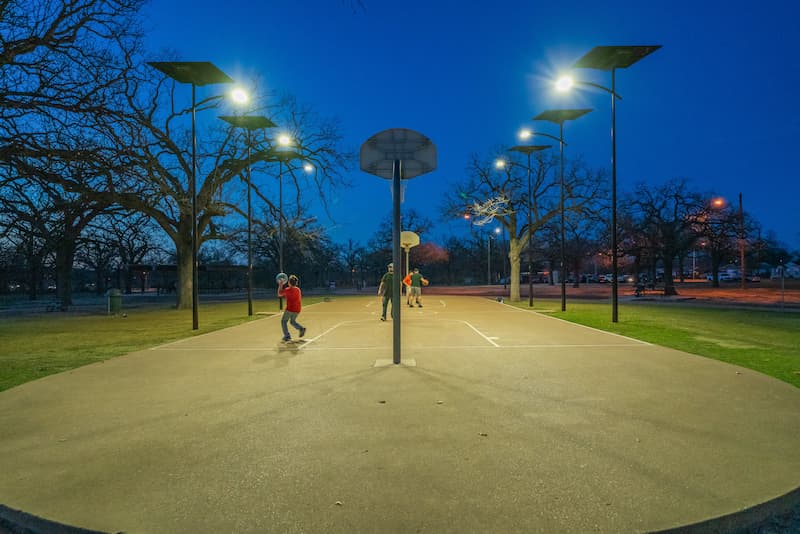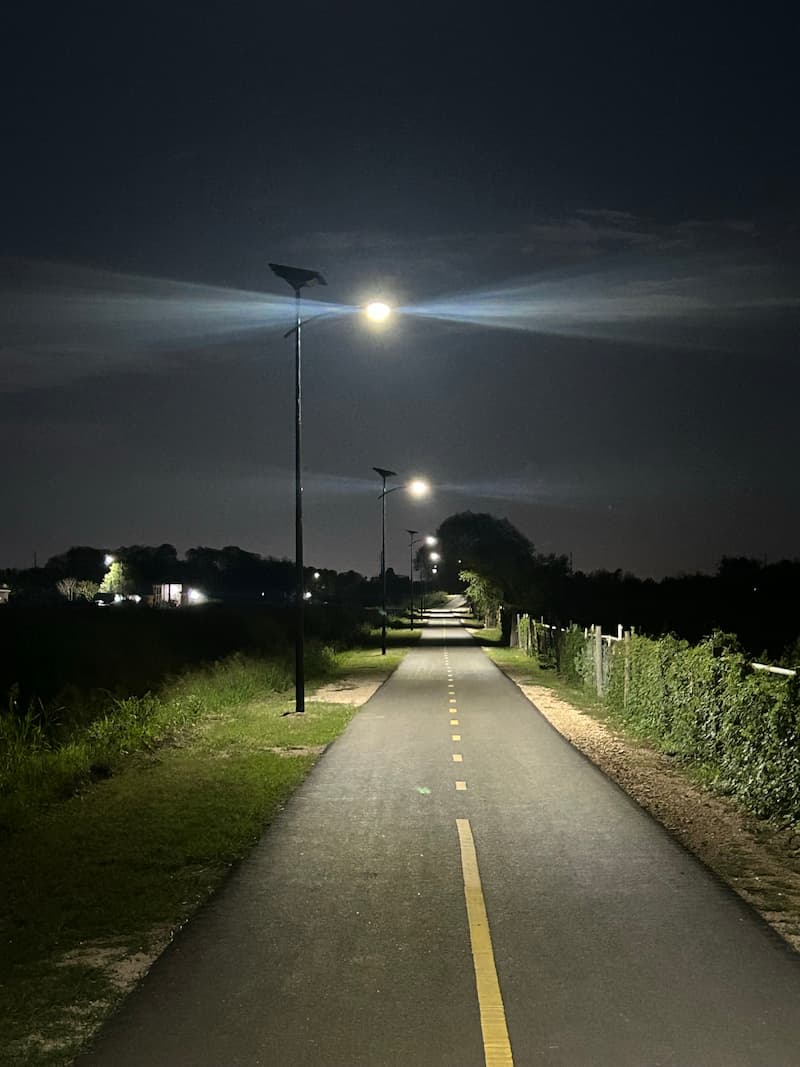Maximizing Municipal Budgets with Cost-Effective Solar Street Lighting Solutions
Municipalities across the country are increasingly turning to solar street lighting as a smart, cost-effective solution to both improve public lighting and reduce energy costs. In a time when cities and towns are faced with tight budgets and rising operational expenses, solar street lighting offers an opportunity to enhance infrastructure without significantly adding to the financial burden. By switching to solar-powered street lights, municipalities can reduce electricity bills, lower maintenance costs, and contribute to long-term sustainability goals.
This article explores how solar street lighting can help municipalities maximize their budgets, highlighting the financial and environmental benefits of energy-efficient solar lighting solutions.
The Challenge of Municipal Budget Management
Municipalities are responsible for a range of public services, from road maintenance and waste management to public lighting and community safety. Balancing the cost of these essential services while managing a limited budget is a challenge that many municipalities face. Traditional street lighting, which relies on electricity from the grid, is one area where costs can quickly add up. Energy bills, maintenance expenses, and infrastructure upkeep can strain a city’s resources, leaving less funding available for other critical projects.

Switching to municipal solar street lighting can offer a significant reduction in energy costs and free up financial resources for other vital services. But how exactly does this work? Let’s dive into the cost-saving benefits of solar street lighting for municipalities.
The Cost-Saving Benefits of Municipal Solar Street Lighting
Solar street lighting systems are powered by renewable energy from the sun, which means they don’t rely on electricity from the grid. This key difference creates immediate cost savings, as municipalities no longer need to pay for electricity to keep their street lights running. But the financial benefits go beyond just energy savings.
Eliminating Electricity Costs
Traditional street lights require a constant supply of electricity, leading to ongoing utility bills that can quickly become a major expense for municipalities. Solar street lights, on the other hand, operate independently of the grid, using energy captured by solar panels during the day to power the lights at night.
This eliminates electricity costs altogether, allowing cities to save thousands of dollars annually. For larger municipalities with extensive street lighting networks, the cumulative savings can be substantial, offering a long-term reduction in operational costs that directly impacts the municipal budget.
Lower Installation Costs
Another advantage of solar street lighting is the reduced installation costs. Traditional street lights require extensive wiring and connection to the electrical grid, which often involves trenching, cabling, and other labor-intensive tasks. In contrast, solar street lights are self-contained units, meaning they don’t need to be connected to the grid.
This results in a quicker, simpler, and more cost-effective installation process. Because there’s no need for costly infrastructure or trenching, solar street lights can be installed in remote areas, parks, or streets where traditional lighting would be prohibitively expensive. The lower installation costs make solar lighting an attractive option for municipalities looking to expand or improve their public lighting without breaking the budget.

Minimal Maintenance Requirements
Maintenance is a significant expense when it comes to traditional street lights. Regular bulb replacements, electrical repairs, and infrastructure upkeep can all add up over time. Solar street lights, by contrast, require very little maintenance.
Most solar street lights use LED bulbs, which have a much longer lifespan than traditional incandescent or fluorescent bulbs. LEDs can last up to 20 years or more, reducing the need for frequent replacements. Additionally, solar street lights are designed to be durable and weather-resistant, minimizing the risk of damage and reducing the need for repairs.
Advanced battery chemistries also reduce maintenance costs. Industrial formulations of Nickel Metal Halide batteries are resistant to extreme temperatures and will last 10 or more years before replacement.
By reducing maintenance needs, municipalities can save both time and money, allowing them to allocate resources to other pressing issues.
Maximizing Municipal Budgets with Energy-Efficient Solar Lighting
In addition to saving money on energy and maintenance, solar street lighting also supports municipalities in meeting their sustainability goals. Many cities and towns are working to reduce their carbon footprint and promote environmental responsibility. Solar lighting offers a green solution that helps municipalities reduce their reliance on fossil fuels while providing reliable, high-quality lighting.
Reducing Carbon Emissions
Traditional street lights rely on electricity, which is often generated from non-renewable sources such as coal, natural gas, or oil. The production of this energy contributes to greenhouse gas emissions and air pollution. By switching to solar street lighting, municipalities can reduce their carbon emissions and contribute to a cleaner, healthier environment.
Each solar street light powered by renewable energy reduces the need for fossil-fuel-based electricity, helping municipalities meet their sustainability targets. This is especially important for cities and towns that have committed to reducing emissions as part of climate action plans or environmental policies.

Energy Efficiency with LED Technology
Solar street lights are typically equipped with LED bulbs, which are significantly more energy-efficient than traditional lighting technologies. LEDs consume far less power than incandescent or fluorescent bulbs, making them the ideal choice for solar lighting systems.
By combining the energy efficiency of LEDs with the renewable power of solar energy, municipalities can maximize their lighting efficiency while minimizing costs. The energy-efficient design of these systems means that even in areas with limited sunlight, solar street lights can provide consistent, reliable illumination.
Frequently Asked Questions About Budget-Friendly Solar Lighting
To help municipalities understand how solar street lighting can maximize their budgets, here are answers to some frequently asked questions:
The amount municipalities can save depends on the size of the street lighting network, local electricity rates, and the cost of maintaining traditional lighting systems. However, many municipalities report savings of up to 50–70% on energy and maintenance costs after switching to solar street lighting.
Solar street lights typically have a lifespan of 25-30 years, with minimal maintenance required. The LED engines used in most solar lighting systems can last up to 10 years or more, reducing the need for frequent replacements.
Yes. Solar street lights are designed to be energy-efficient and can still function effectively in areas with less direct sunlight. High-efficiency solar panels and battery storage systems ensure that the lights continue to operate even during cloudy or rainy periods.
Yes. Many municipalities are eligible for government incentives, grants, and rebates that encourage the adoption of renewable energy technologies, including solar street lighting. Solar lighting can also enhance grant proposals for community redevelopment projects. These programs can help offset the initial cost of installation, making it even more budget-friendly.
Conclusion: Solar Street Lighting as a Budget-Saving Solution for Municipalities
Switching to solar street lighting is a smart, budget-friendly decision for municipalities looking to reduce energy costs, lower maintenance expenses, and meet sustainability goals. By eliminating electricity costs, reducing maintenance needs, and offering a green alternative to traditional lighting, solar street lights allow municipalities to allocate resources more effectively.
At Fonroche Lighting America, we provide high-quality solar street lighting systems designed to maximize efficiency and minimize costs. Contact us today to learn how our solar lighting solutions can help your municipality save money while improving public lighting.

